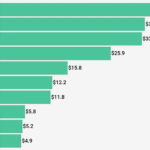Introduction
Health insurance is a vital component of financial planning, offering protection against the high costs of medical care. In this comprehensive guide, we’ll explore what health insurance is, how it works, the benefits it provides, and key considerations for selecting the right policy. Whether you’re navigating the complexities of health insurance for the first time or seeking to optimize your coverage, this guide will provide valuable insights to help you make informed decisions about your healthcare needs.
Understanding Health Insurance
Health insurance is a type of insurance coverage that pays for medical and surgical expenses incurred by the insured. It functions as a contract between the policyholder and the insurance company, where the insurer agrees to cover a portion of the insured’s medical costs in exchange for premium payments. Health insurance policies vary widely in terms of coverage, cost, and provider networks, offering individuals and families access to essential healthcare services while mitigating financial risks associated with medical expenses.
How Health Insurance Works
Premiums: Premiums are the monthly or annual payments made by policyholders to maintain health insurance coverage. Premium amounts vary based on factors such as age, location, coverage level, and the insurer’s pricing structure.
Deductibles: Deductibles are the amount of money that policyholders must pay out of pocket for covered healthcare services before their insurance coverage kicks in. Higher deductible plans typically have lower premiums but require higher out-of-pocket expenses for medical care.
Co-payments and Co-insurance: Co-payments (co-pays) and co-insurance are additional cost-sharing mechanisms where policyholders pay a percentage of the cost of covered services after meeting their deductible. Co-pays are fixed amounts paid for specific services (e.g., doctor visits, prescriptions), while co-insurance represents a percentage of the total cost shared between the policyholder and the insurer.
Provider Networks: Health insurance plans often have networks of healthcare providers, including doctors, hospitals, and specialists, with whom they have negotiated discounted rates. In-network providers typically offer lower costs to policyholders, while out-of-network providers may result in higher out-of-pocket expenses.
Benefits of Health Insurance
Health insurance provides several key benefits, including:
Access to Healthcare: Health insurance ensures access to essential healthcare services, including preventive care, diagnostic tests, treatments, and prescription medications, without the burden of exorbitant out-of-pocket costs.

Financial Protection: Health insurance protects individuals and families from the potentially catastrophic financial consequences of unexpected medical expenses, such as hospitalization, surgery, or chronic illness management.
Preventive Care Coverage: Many health insurance plans include coverage for preventive care services, such as annual check-ups, immunizations, and screenings, aimed at detecting and preventing illnesses before they become serious.
Chronic Disease Management: Health insurance facilitates access to ongoing medical care and treatment for chronic conditions, such as diabetes, heart disease, and asthma, helping individuals manage their health and improve their quality of life.
Emergency Care Coverage: Health insurance provides coverage for emergency medical services, including ambulance transportation, emergency room visits, and urgent care treatment, ensuring prompt access to critical care when needed.
Considerations for Selecting Health Insurance
When choosing a health insurance plan, consider the following factors:
Coverage Options: Evaluate the coverage offered by different plans, including benefits, exclusions, and limitations, to ensure they meet your healthcare needs and preferences.
Costs: Compare premiums, deductibles, co-pays, and co-insurance amounts to determine the overall cost of coverage and assess affordability based on your budget and expected healthcare usage.
Provider Networks: Review the network of healthcare providers included in each plan to ensure access to preferred doctors, hospitals, and specialists without incurring excessive out-of-network costs.

Prescription Drug Coverage: Assess the prescription drug formulary of each plan to determine coverage for medications you currently take or may need in the future, considering co-pays, tiers, and coverage restrictions.
Additional Benefits: Explore additional benefits and services offered by health insurance plans, such as wellness programs, telemedicine options, and alternative medicine coverage, to enhance your overall healthcare experience.
FAQs (Frequently Asked Questions)
What is the Affordable Care Act (ACA), and how does it impact health insurance?
The Affordable Care Act, also known as Obamacare, is a federal law aimed at expanding access to health insurance coverage, improving healthcare quality, and reducing healthcare costs. It introduced health insurance marketplaces where individuals and families can compare and purchase health plans, established consumer protections such as coverage for pre-existing conditions and essential health benefits, and expanded eligibility for Medicaid in participating states.
What is a Health Savings Account (HSA), and how does it work with health insurance?
A Health Savings Account (HSA) is a tax-advantaged savings account designed to help individuals and families save money for qualified medical expenses. HSAs are typically paired with high-deductible health plans (HDHPs) and allow contributions to be made on a pre-tax basis, with funds used to pay for eligible healthcare expenses tax-free. HSAs offer flexibility, portability, and potential investment growth, making them a valuable tool for managing healthcare costs.
Can I stay on my parents’ health insurance plan if I’m no longer a dependent?
Under the Affordable Care Act, young adults can stay on their parents’ health insurance plan until age 26, even if they are no longer claimed as dependents on their parents’ tax returns. This provision ensures that young adults have access to affordable health insurance coverage as they transition into adulthood and establish their careers.
What is the difference between HMO and PPO health insurance plans?
Health Maintenance Organization (HMO) and Preferred Provider Organization (PPO) are two common types of managed care health insurance plans. HMO plans require members to choose a primary care physician (PCP) and obtain referrals for specialist care, with coverage limited to in-network providers. PPO plans offer greater flexibility in provider choice, allowing members to visit both in-network and out-of-network providers without referrals, albeit at higher out-of-pocket costs.
What happens if I miss the open enrollment period for health insurance?
Missing the open enrollment period for health insurance may limit your options for obtaining coverage outside of qualifying life events such as marriage, birth/adoption of a child, loss of other coverage, or relocation. In some cases, you may be eligible for a special enrollment period or coverage through Medicaid or the Children’s Health Insurance Program (CHIP) if you meet specific criteria.



